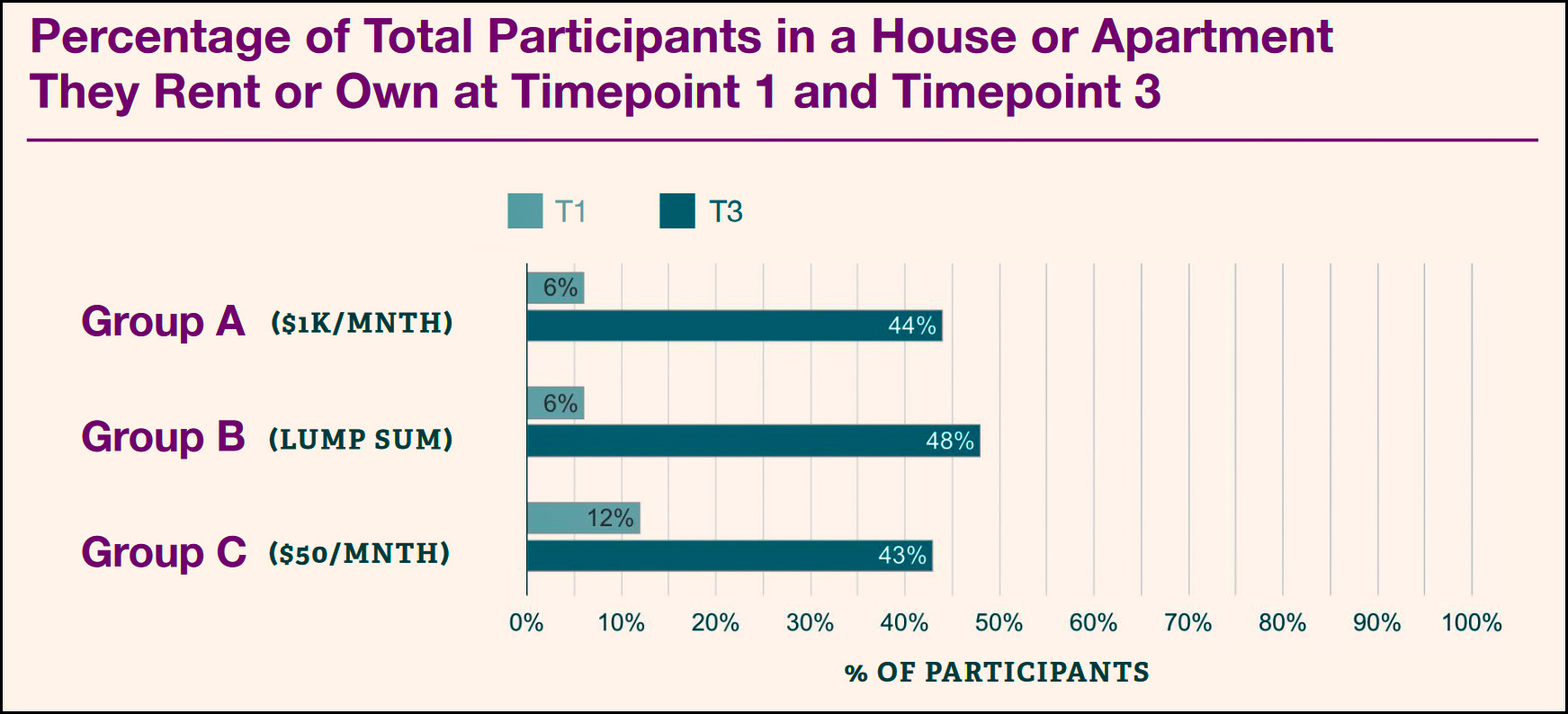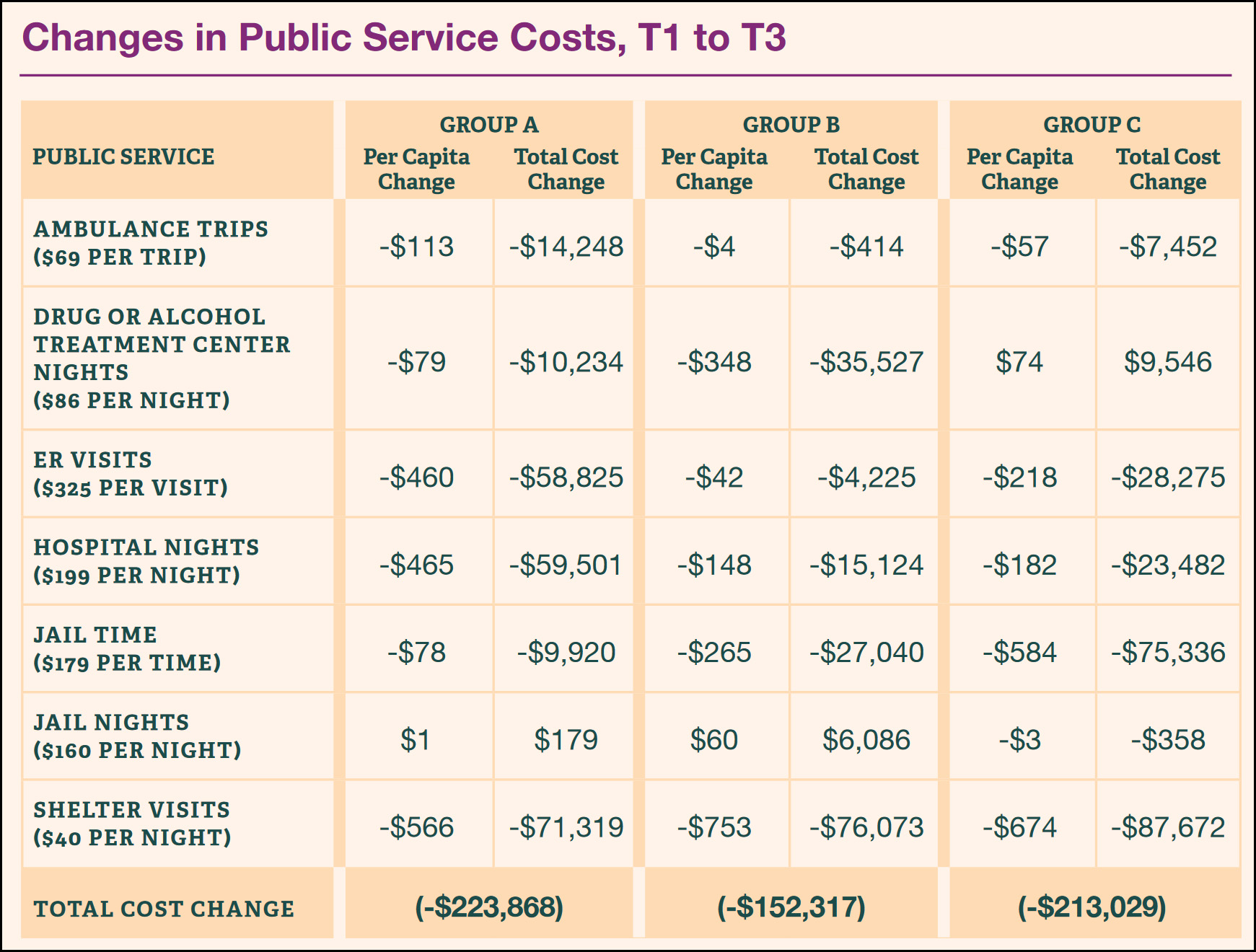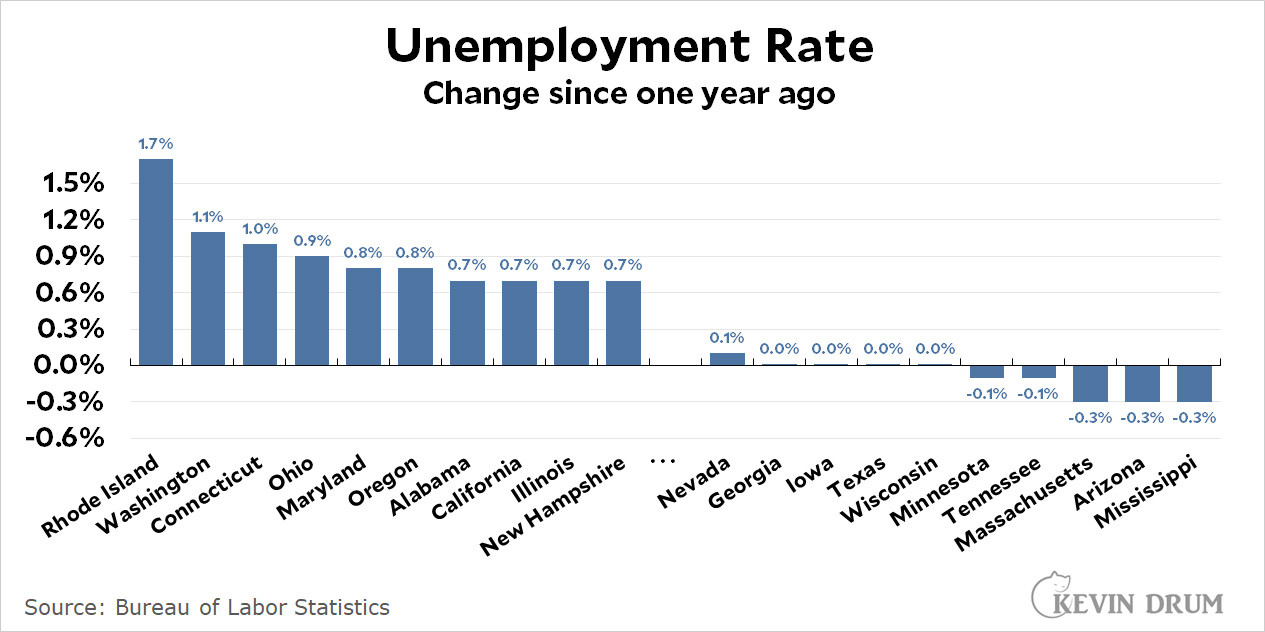The Dallas Fed reports today that AI has so far had "minimal" effects on employment in Texas firms. Maybe. But first, take a look at their chart:
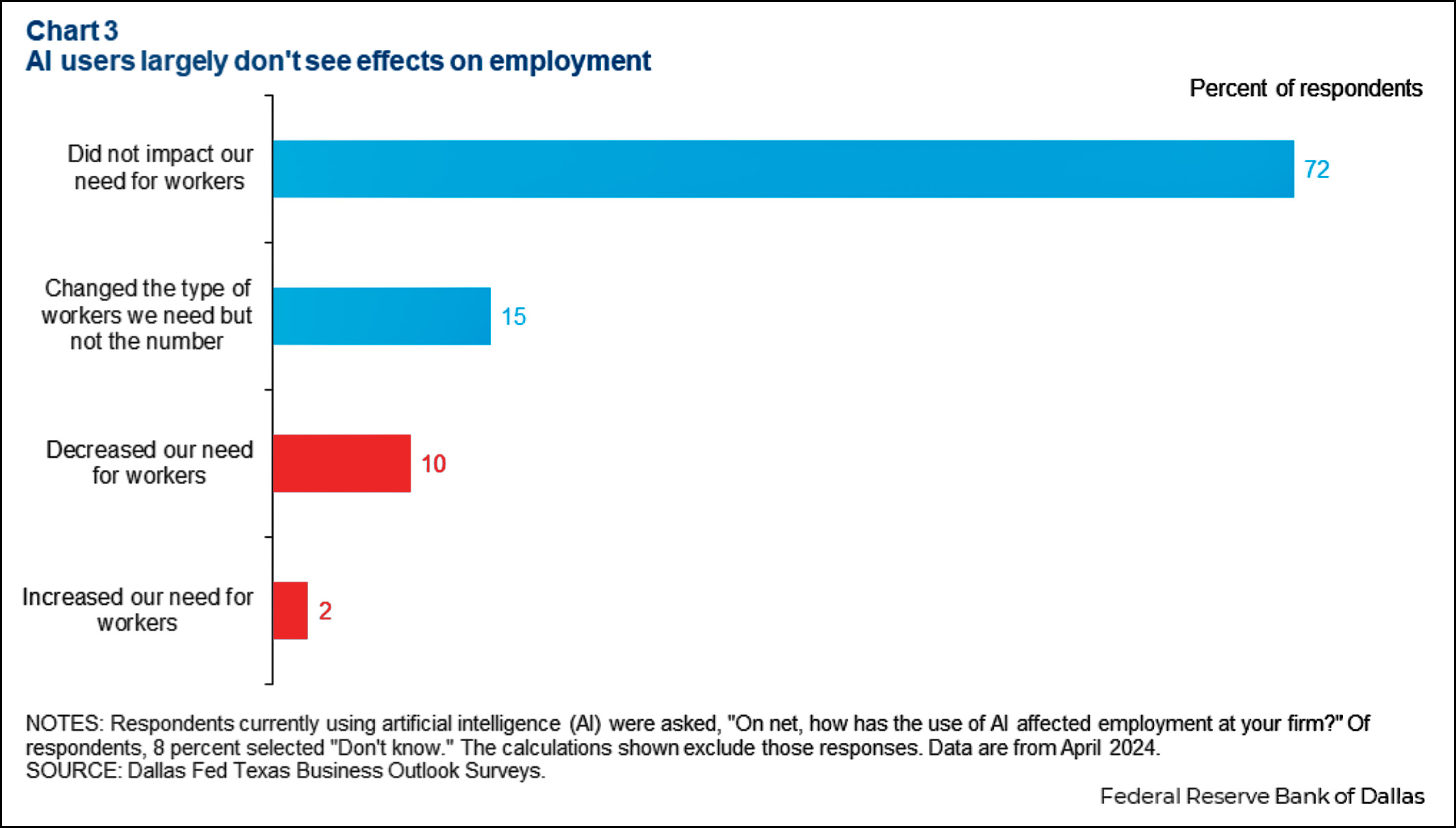 Among firms that use AI, that's a net of 8% of firms saying it's decreased their need for workers. That doesn't seem so minimal to me—especially for a technology that was effectively introduced only in late 2022. I wonder how many actual employees this represents?
Among firms that use AI, that's a net of 8% of firms saying it's decreased their need for workers. That doesn't seem so minimal to me—especially for a technology that was effectively introduced only in late 2022. I wonder how many actual employees this represents?
It's also instructive to listen to the anecdotal evidence:
Most companies using AI report it has not affected their need for workers. A financial services firm noted, “AI is helpful in offloading workload and increasing productivity, but we are not at the point where AI is going to replace workers.”
Ten percent of companies using AI say it reduced their need for employees; these firms were largely using AI for customer service and process automation. A manufacturer noted, “There is strong potential for AI to automate or eliminate many clerical jobs in our business that will save our team time and money.” Workforce reductions from AI use are notably more common among large firms than small ones.
If AI is offloading workload, then it's going to replace workers pretty shortly. And if there's "strong potential" to eliminate clerical jobs, then those jobs are going away.
About 20% of all firms surveyed say they use generative AI (Copilot, GPT-4, Claude, etc.). That's a helluva lot for a technology that's only been around in usable form for two years. And the firms using it sure seem happy with the results:
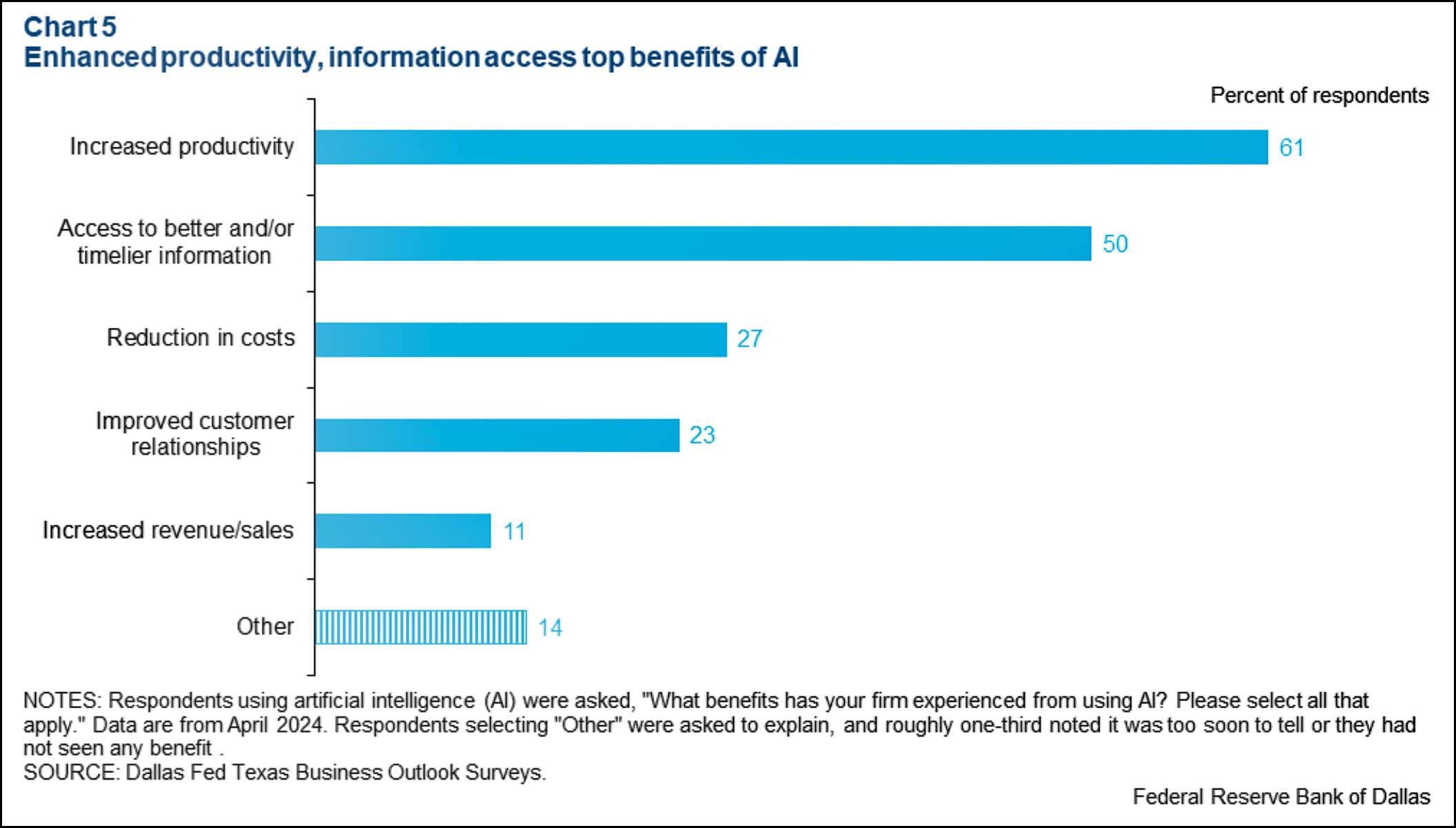 I'll concede that findings like this aren't always reliable. Whoever fills out the survey is guessing at this stuff and might not be guessing correctly. Still, even if some of the AI use is sketchy (Copilot to help write emails, for example), it sure seems to have gained adoption remarkably quickly.
I'll concede that findings like this aren't always reliable. Whoever fills out the survey is guessing at this stuff and might not be guessing correctly. Still, even if some of the AI use is sketchy (Copilot to help write emails, for example), it sure seems to have gained adoption remarkably quickly.

